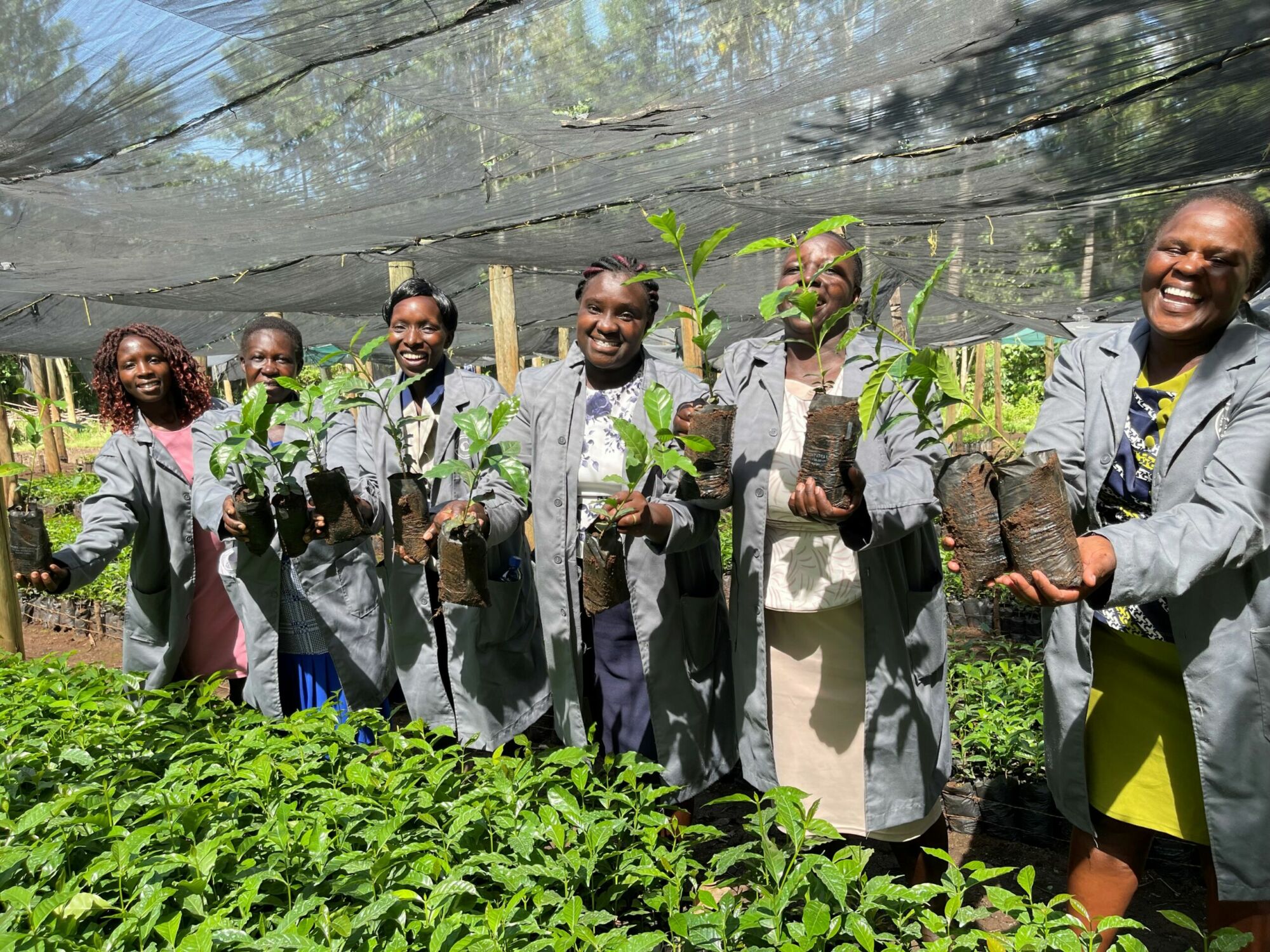Female coffee farmers earn little or nothing, despite the amount of work they put in. They do not have the same market opportunities, have limited access to resources, and have less say over coffee production’s planning and supply segment. Women continually face significant barriers to their equal participation, such as limited access to land, capital, and technical information.
To transform this platitude narrative, We Effect, is using gender-transformative approaches to mainstream and integrate women in coffee production. The outcome is more female membership in cooperatives and more women taking up decision-making roles. The aim of the gender-transformative approach is to increase women’s participation in Kenya’s coffee farming industry, by making their farms more sustainable and profitable.
Below are stories of the impact of our work with women coffee farmers. These achievements promote gender equality and women’s empowerment in the coffee value chain.
Women’s influence in cooperatives enhanced; A case of Betty Cheruiyot
Mrs. Betty Cheruiyot, is a mother of two and a smallholder coffee farmer from Kipsinende Farmers’ Co-operative Society an affiliate to Kipkellion District Co-operative Union. She is also a member of Kipkellion Women in Coffee (KWICO) in Kericho County, Kenya.
“When I graduated from college, I did not get any formal employment and for a period of time, I depended mainly on my husband to provide everything. It was hard to get every basic need with the current economic situations,” she narrates. Betty wishes to give gratitude to We Effect in partnership with Kipkellion District Co-operative. Their initiatives have empowered women and youth through capacity-building in areas such as; poultry keeping, coffee farming, Village Savings and Loan Associations(VSLAs), and entrepreneurship.
We Effect supports the Advancing Gender equality in Coffee Value chain (AGTEC). The aim of this initiative is to address the key challenge of gender inequality in the coffee value chain.
This challenge is caused by cultural practices, land tenure system that promotes male ownership, and discriminative bylaws in societies’ that hinder women and youth participation in membership. Additional factors include bad election policies that create a discriminative environment for women’s participation in leadership, as well as low economic empowerment and financial capacity for women, which hinders their engagement in economic activities.
As a result, Betty explains that in their village, many women have been empowered. For instance, Mrs. Cheruiyot had the privilege to be among the few women trained at Kipkellion District Co-operative Union on liquid soap making. She was impressed and rejuvenated because of the knowledge acquired after the training and further went ahead to make use of the skill.
“Our standards of living have improved in a number of ways. The cost of purchasing soap has reduced. I also earn a living by preparing and supplying liquid soaps to some of our neighboring schools, clinics and even to my neighbors.”
Soap-making has assisted our community in this period of the COVID-19 pandemic. The after-sales proceeds from the soap business is helping women earn an income, pay school fees for their children, make deposits in Village Savings Loan Association group (VSLA) and improve their farming activities in areas such as coffee, maize and beans.
Mrs. Cheruiyot has also acquired capital to start a poultry project which has enabled her keep her children healthy, meet her basic needs, purchase a dairy cow and start a business selling milk in the village. Preparation and use of the smoke-less jiko has minimized their fuel consumption, while the reduced smoke, has greatly improved their health. Mrs. Cheruiyot also has a kitchen garden where she gets vegetables for home consumption and for commercial purposes.
From the empowerment, she has planted a total of 150 coffee trees. She is now picking berries from 80 trees (320 kg of cherry) which enabled her to register as a member of the Kipsinende farmer’s co-operative society. From the cherries she picked, she used half of the proceeds to join Kipkellion Women in Coffee and to boost her share capital. The cooperative aims to increase membership and provide its members with access to savings and credit facilities.
Magdalene Mutai
Mrs. Mutai, who is a member of Sereng Cooperative Society, also attributes her success to the benefits of being a member of Kipkellion Women in coffee. Also supported by the project, Mrs. Mutai notes, “Kipkellion women in coffee has supported us a lot in trainings on soap making, poultry, VSLA, and dairy leadership for change.”
“After the training at Kipkellion District Co-operative Union (KDCU) organized by We Effect and the union project, I have managed to diversify into dairy and poultry farming. This has assisted in improving food security and has also increased my income.”
Mrs. Ann Tuei is one of the Kipkelion women in coffee leaders, where she holds the position of treasurer. She is also a delegate at Kipkelion District Cooperative Union Ltd, representing Kimologit Farmers’ Cooperative Society.

“I am one of the women in coffee and have received coffee seedlings. I have formed and empowered 25 women groups at the Kipkelion Zone after being trained on VSLA.”
The women in coffee program is helping women with limited access to land split their produce and proceeds with men in an inclusivity venture. The model is fast becoming popular in Kericho county, with the cooperative union winning accolades due to this venture.
Watch more about the women in this video:
